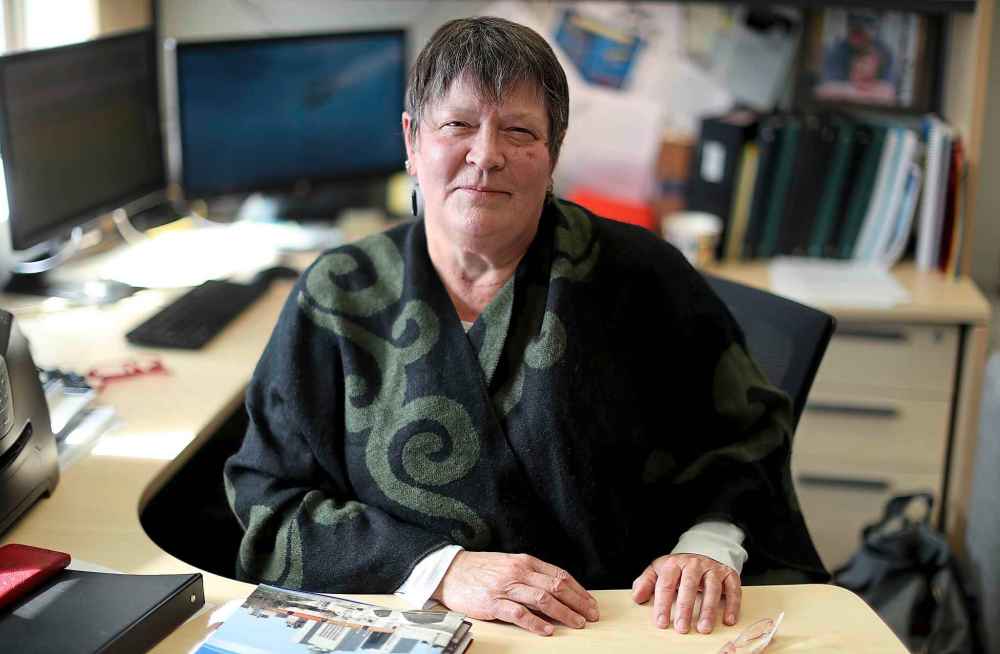Police board needs to refocus on community concerns: criminologist
Advertisement
Read this article for free:
or
Already have an account? Log in here »
To continue reading, please subscribe:
Monthly Digital Subscription
$1 per week for 24 weeks*
- Enjoy unlimited reading on winnipegfreepress.com
- Read the E-Edition, our digital replica newspaper
- Access News Break, our award-winning app
- Play interactive puzzles
*Billed as $4.00 plus GST every four weeks. After 24 weeks, price increases to the regular rate of $19.95 plus GST every four weeks. Offer available to new and qualified returning subscribers only. Cancel any time.
Monthly Digital Subscription
$4.99/week*
- Enjoy unlimited reading on winnipegfreepress.com
- Read the E-Edition, our digital replica newspaper
- Access News Break, our award-winning app
- Play interactive puzzles
*Billed as $19.95 plus GST every four weeks. Cancel any time.
To continue reading, please subscribe:
Add Free Press access to your Brandon Sun subscription for only an additional
$1 for the first 4 weeks*
*Your next subscription payment will increase by $1.00 and you will be charged $16.99 plus GST for four weeks. After four weeks, your payment will increase to $23.99 plus GST every four weeks.
Read unlimited articles for free today:
or
Already have an account? Log in here »
Hey there, time traveller!
This article was published 02/10/2019 (2328 days ago), so information in it may no longer be current.
The Winnipeg Police Board needs to redefine its role if it’s to be considered a legitimate oversight body for the Winnipeg Police Service, a Manitoba criminology professor told city hall Wednesday.
Bronwyn Dobchuk-Land, an assistant professor of criminal justice at the University of Winnipeg, said the board is ignoring legitimate community concerns over WPS strategies and has allowed itself to become a “mouthpiece” for the police service.
Dobchuk-Land told city councillors on the protection, community services and parks committee restrictions in the legislation that created police boards prevents them from setting or directing police policy and strategies. However, the board can use its position to harness public opinion that could be used by city council to determine how the police operate, she said.

“Instead of being a mouthpiece for the police service, instead of affirming the police vision for what public safety looks like, the police board should be a forum where communities feel comfortable and empowered to bring their concerns about policing and police governance and have those concerns heard and brought to city council,” Dobchuk-Land said ahead of a presentation by the police board on its 2018 annual report and summary of expenses.
(The WPS 2018 statement of revenues and expenses was also put forth.)
Dobchuk-Land said the police board report is a “rubber stamp” of WPS goals.
“I am concerned the Winnipeg Police Board is not adequately fulfilling its mandate to represent diverse public (opinion) in providing oversight to the Winnipeg Police Service,” she told the committee.
The provincial government mandated the establishment of police boards across the province following a public inquiry into police conduct, removing oversight of police from elected officials and giving it to appointed boards.
The Winnipeg Police Board was established by a city bylaw, and its first members appointed in 2014. Winnipeg city council approves a global funding amount for the WPS, and it’s up to the WPS, in consultation with the police board, to develop an annual budget.
Dobchuk-Land said she believes the WPS’s $301-million budget is too large, adding the board should use its position to reflect public opinion over how those dollars could be spent and put pressure on city council to reduce the police budget and redirect spending into other areas.
“The Winnipeg Police Service budget keeps increasing every year, despite ample evidence that increases in policing do not lead to decreases in crime,” Dobchuk-Land said.
“I don’t think police are effective at crime prevention. The evidence suggests that if we want to reduce violence, to reduce criminal involvement, you have to invest in supports in peoples’ lives, like housing, public health, addictions treatment.”
Coun. Kevin Klein, chairman of the Winnipeg Police Board, said he disagreed with Dobchuk-Land’s assessment, adding her suggestions should have been directed to the Manitoba Police Commission, which can suggest changes to the legislation.

Klein said since becoming chairman of the board almost a year ago, it has been actively engaging various community groups and WPS crime-prevention strategies are working.
However, Shauna Curtin, police board secretary, told the committee some of Dobchuk-Land’s concerns have been shared by previous board members.
“Some of those (legislated) limitations have made successive boards unhappy with what their role is and what they felt they could implement in terms of police presence and response to citizens here in Winnipeg,” Curtin said, adding the board’s role is restricted to setting “strategic” policy for the WPS and holding the police chief “to account by virtue of his performance.”
Curtin said the strategic direction given by the board to the WPS is supposed to reflect the “needs, values, and expectations of the city, by that, I mean residents.”
She said the police board’s vision for the WPS is a “culture of safety for all,” adding the new strategic plan for 2020 will reveal “some shifts in what the board holds the police service accountable to.”
aldo.santin@freepress.mb.ca

